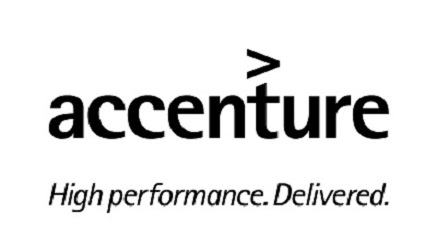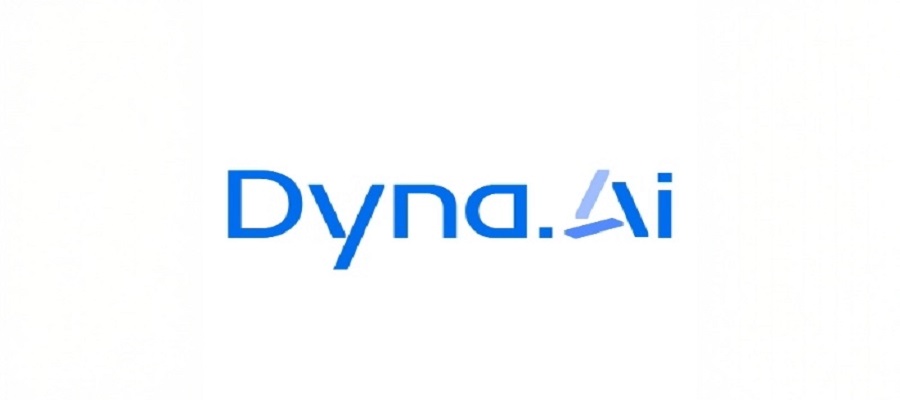E-Business
Service Providers/Mobile Manufacturers’ Partnership, Transformational- Accenture

The emergence and growth of digital technologies is one that has had a fast move in the world and has been quickly bought over by individuals, firms, industries and governments.
Also, the advent of digital technology has brought about new ways to communicate, interact and transact business.
An Accenture 2015 Digital Consumer Survey, however reveals that consumers find smart devices increasingly relevant to their lives, and are inspired by the possibilities of the connected world.
Another Accenture research also goes to show that large enterprises believe that digital technologies are a good potential for business transformation.
Knowing that communication is key not only for inter-personal communication but business as well, digital technology has changed the face of business communication with the ubiquitous nature of the internet, instant messaging, teleconferencing and even telecommuting have become possible.
In Nigeria, there has been a proliferation of digital activities with the high penetration of smartphones and tablets.
Studies show that strong global and indigenous mobile manufacturers in Nigeria are now giving in-depth attention to the smartphones and tablet divisions as against the computer.
In the Nigerian market, the activities of service providers are regulated by the Nigerian Communications Commission (NCC).
This high penetration of mobile devices is attributable to the laudable benefits it brings to end users; individuals and businesses alike.
It has helped individuals build a large network of people, create new ways for interaction and has aided communication by taking away the barrier of space and time.
For organisations, they have learnt new ways to conduct business, reduce employee work load, collaborate with other organisations and outsource jobs irrespective of location.
These are just a few of the advantages digital technology has brought to Nigeria and the world at large.
Holistically, digital technologies are now mainstays in the business world with some organisations even having the role of a “Chief Digital Officer”.
Thus mobile manufactures and Service Providers (SP) have become indispensable in our daily lives.
With the functionality digital technology plays in our world, conferences are held round the globe to discuss issues pertaining to this industry.
The challenges they face, successes recorded and the way forward. It is also an opportunity to make business deals and network. From the 2nd to the 5th of March, 2015; Barcelona Spain, played host to this year’s World Mobile Congress (WMC), which has become a Mecca to anyone interested in things relating to the internet.
Mobile manufacturers also use these events as an avenue to launch their flagship products. South-Korean conglomerate Samsung, launched its Samsung S6 and S6 Edge at the 2015 WMC.
Jim Bailey, group managing director Accenture Digital –Mobility at the 2015 WMC said, “insurance and financial services industry now want to connect everything to the internet, because they see it as an ‘insurable’ opportunity”.
With the potential of digital technology to transform business and thus the economy at large,a unique partnership with mobile telephony manufacturers (MTMs) and service providers should be considered.
Though it may seem like the functions of mobile manufacturers and service providers are clearly different in the business of digital technologies, a collaboration with both parties can transform not just individual lives but the face of business.
Mobile manufacturers should continually design, manufacture and sell wireless technological equipment that allow for seamless business transactions and interactions.
And on the other hand, service providers should ensure that information is efficiently and effectively transmitted.
The benefits of this partnership are innumerable with some including the ability to create new revenue opportunities, increase product and service development speed, an increase in customer engagement and also help create new markets for business.
However, these two key players in the world of digital technology are poised with some short comings.
The issue of security is one that cannot be over flogged in the digital ecosystem.
In recent times, there have been problems of authorization and authentication; with intruders gaining access to secured networks and information (hacking).
Nonetheless, there are a range of security measures and applications available to individuals and firms.
Organisations like the Centre for Internet Security help combat insecurity in the digital world.
In an Accenture global consumer survey, it was discovered that consumers believe that the use of a single service provider to manage communication and entertainment products and services aids security. Tom Loozen, managing director and global Communications Industry lead, Accenture said, “Consumers’ preferences for a single, trusted provider also place SP networks in the spotlight”. He further goes to say that “this can be a distinct advantage for SPs, because they can combine their expertise in building and managing IP networks with their increased capabilities to develop and deliver new, customer-focused services that incorporate data analytics for highly personalized services. As a result, SPs are positioned to do well in the digital ecosystem.”
However, in Nigeria this is not the case as individuals and organisations use different SPs on their different devices.
Businesses may stand on the fact that the use of different SPs makes it easier to connect with their customers.
Also connected to this is the issue of signals in different areas in Nigeria. Due to the terrain of the country, the networks provided by some SPs may or may not work in some locations.
Thus it may be wise to employ the services of more than one SP in order to be within reach at all times.
Conclusively, organisations must see digital security holistically, treating them as an extension of wider organisation security on an ongoing basis.”
Another hindrance to the advancement of digital technology in business is the complexity associated with using them. People who possess technological devices consider using and managing them a herculean task.
However, Loozen posited that “SPs who establish themselves as ‘trusted providers,’ enabling customers’ products to function effectively within this ecosystem are not only providing a valuable service, but helping drive digital for mass adoption.”
Closely associated with this is the fact that organisations have difficulties in building technological partnership due to the pervasive nature of digital technology. Thus the partnership between mobile manufacturers and service providers will help bridge this gap, and hence remove the difficulties inherent in creating the right partnership in the digital ecosystem.
Loozen also added that “consumers are considering service providers as their facilitators for the digital goals they aim to achieve and as such have an important role to play in the move to the digital age”.
The Nigerian digital ecosystem is a constantly growing field with mobile technology being at the forefront.
NCC as at 2014, put the total number of smartphones in the country at 12 million. This buttresses the point that Nigeria is a viable ground for software engineers, applications developers and technological gurus to invest in, in order to meet the ever evolving needs of digital Nigeria.
Digital technologies have been instrumental in transforming business and industries round the globe and thus mobile manufacturers and service providers who have a key role to play should endeavour to make this trend void of all technicalities and difficulties in order to get the buy-in of organisations in order to make this global village a better place.
E-Business
NIMC Plans to Register 95 Percent Nigerians by December

Abisoye Coker-Odusote, director general, National Identity management commission (NIMC) has said that the commission is set to register 95 percent of Nigerians into the National Identity Database before December 2025.

Abisoye Coker-Odusote,, DG, NIMC
She made this statement at a press briefing to highlight the commissions goal aligns with President Bola Tinubu’s Renewed Hope Agenda, particularly on digital governance and inclusive development.
The mass enrollment drive will be powered by a combination of improved infrastructure, expanded registration centres, and robust public sensitization campaigns.
As of May 2025, NIMC reports over 120 million Nigerians have been enrolled, and about 100 million more would be captured by December.
E-Business
Farmers to Get Identity Card for Loans, Inputs

The federal government, in collaboration with the International Fund for Agricultural Development (IFAD), is building a digital registrar that will identify farmers, their farmlands, type of soil and the crops they grow for targeted services.

The information and the National Identification Number (NIN) will be integrated into a multipurpose identity card that farmers can use to access financial services, inputs and other forms of government assistance.
The digitisation is expected to harmonise farmers’ data across all the 36 states and the Federal Capital Territory.
Speaking at the national launch of the Policy Dialogue Initiative on the National Digital Farmers Registry (NDFR) recently in Abuja, Dr Marcus Ogunbiyi, permanent secretary, Federal Ministry of Agriculture and Food Security (FMAFS), said the new system would address the issue of portfolio farmers, whom he described as “farmers who have no farm.”
“We are going to register farmers and their farms. Not only that, farmers and the type of crop they grow, farmers and the locality they are, the type of soil they have on their farms. There is no farm that will not have a farmer. But there are many farmers who do not have farms. This is an encompassing package.
“When we register these farmers, we are going to provide a physical and digital card for them. With the card, many things can be done by the farmers. It can be used as a means of identification, an asset to some gateway – just anything. It is going to have a handshake with the database of the country, such that with that particular card, the farmer can enter any place and get things done. He or she can redeem inputs and even get a loan, depending on the financial entity,” Ogunbiyi explained.
He said that to accomplish this, the Federal Ministry of Agriculture and Food Security has taken decisive steps to transform their approach to farmer data management, adding, “Chief among these is our strategic partnership with the National Identity Management Commission (NIMC) to implement a far-reaching farmer registration and database project. At the heart of this initiative is the integration of the NIN, which ensures that every Nigerian farmer is uniquely identified and seamlessly integrated into a national agricultural system.”
Mrs Dede Ahoefa Ekoue, country director/representative of the IFAD in Nigeria, said the United Nations (UN) organisation was proud to be part of the initiative on the National Digital Farmer Registry in Nigeria.
“Our role is to convene all the partners, development partners from the public sector, private sector and the international community to put our resources together to support the effort of the government in establishing and enabling a digital farmer registry for the country,” she said.
Mrs Ekoue said that although there were previous efforts to have a national database of farmers, it had the issues of fragmentation and sustainability.
“The government is now providing us with a sense of direction and matching orders to all the actors to work together. This is what we are doing today with several partners, including the African Development Bank, FAO, the World Bank, the EU, the Islamic Development Bank and UK. Also, what is very key is farmers’ organisations because it is about them, it is for them, it must be with them,” she added.
The country director said the IFAD was happy to bring together the private sector and different ministries, departments and agencies, adding, “It will be a game changer for having a strong, updated and sustainable national digital farmer registry.”
Dr Lekan Tobe, the country director of Heifer International in Nigeria, in his remarks at the official launch of the Policy Dialogue Initiative on the National Digital Farmer Registry, emphasised the critical role of partnership and data in transforming Nigeria’s agricultural sector.
He said that this initiative, born from recommendations of previous policy dialogues organised in collaboration with the federal government, aimed to scale up innovative digital technology to enhance food systems across the country.
E-Business
Dyna.Ai Launches Operations in Nigeria

Dyna.Ai, a global leader in AI-as-a-Service (AIaaS), has launched its operations in Nigeria with an exclusive closed-door ‘Nigeria Dyna Day’ event in Lagos, which saw the introduction and orientation of its suite of AI-powered products and solutions to Nigeria’s emerging financial ecosystem.

The event, tagged ‘Nigeria Dyna Day’ and themed “AI Unleashed: Revolutionising Nigeria’s Financial Future,” brought together leading voices from the country’s AI, financial, fintech, telecom, and other key sectors, including representatives from government agencies and major enterprises.
In his opening remarks, Tomas Skoumal, chairman and co-president of Dyna.Ai, emphasized the strategic importance of Nigeria and the broader African market, stating, “For us, it makes sense to start in Nigeria.
There is no bigger country in Africa—this is where the momentum is.” He noted that Africa is no longer just “the future,” but is actively transforming today, driven by rapid digitalization and fintech innovation.
“This is the perfect time to be here,” he added, highlighting that Dyna.Ai sees technology as a vital bridge to financial inclusion and long-term growth across the region.
Skoumal introduced Dyna.Ai’s advanced Agentic AI solutions, including its proprietary Agent Studio and industry-specific language models, designed to power intelligent automation across customer service, marketing, collections, HR and more.
He also underscored the company’s long-term ambition to invest in local talent, stating, “We’re not just here to sell a product—we’re here to build infrastructure, create local jobs, and scale innovation from Nigeria to the rest of Africa.”
Dyna.Ai also showcased its advanced AI technologies at the event, including AvatarGPT, an AI digital human delivering interactive experiences; VoiceGPT, a voice agent featuring authentic local accents for seamless communication in Yoruba, Hausa, and Igbo; along with live demonstrations showing how these innovations empower customer engagement and employee experience.
Delivering the keynote address at the event, Tokoni Peter Igoin, Special Assistant to the President on ICT Development and Digital Innovation, underscored the Federal Government’s vision for a secure and forward-thinking digital ecosystem.
“The government of the Federal Republic of Nigeria, under the visionary leadership of His Excellency, President Bola Ahmed Tinubu, is fully committed to responsible innovation. Our approach to AI and financial technology is rooted in a positive framework. It encourages creativity while ensuring transparency, data protection, and digital security”, he said
Also in his remarks, Olatunbosun Alake, Lagos State Commissioner of Innovation, Science and Technology, gave insights from the government/regulatory perspective.
He announced that the Lagos State government is also taking steps towards the wide adoption and regulation of artificial intelligence in the state with the planned release of the first AI guidelines for the deployment and management of AI in the coming weeks.

 News1 day ago
News1 day agoSERAP Sues NNPC over Alleged Missing ₦500Bn, Seeks Accountability

 News1 day ago
News1 day agoFirst Asset Management Receives 2024 Fund Manager Award

 General News1 day ago
General News1 day agoNigeria Relaunches National Talent Export Programme to Unlock $1 Trillion Global Outsourcing Market

 E-Business1 day ago
E-Business1 day agoDyna.Ai Launches Operations in Nigeria

 E-Business1 day ago
E-Business1 day agoFarmers to Get Identity Card for Loans, Inputs

 Telecom1 day ago
Telecom1 day agoNiRA Holds 17th AGM, Elects New Leadership to Propel .ng Domain Growth

 Telecom1 day ago
Telecom1 day agoARCON Probes 9mobile over Alleged N1Bn Advertising Debt

 General News1 day ago
General News1 day agoFG Plans Special Court for Exam Cheats

























